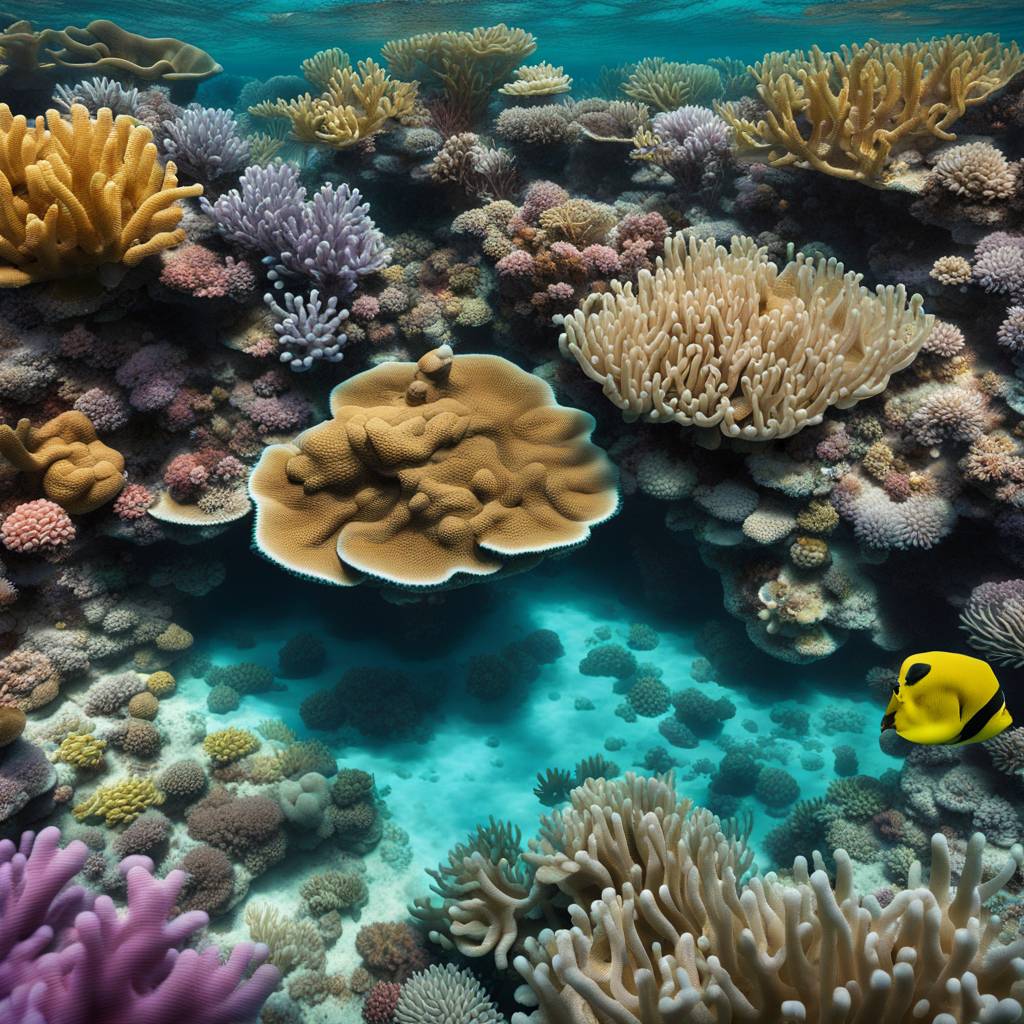A new study led by the universities of Exeter and Queensland has found that deeper areas of the Great Barrier Reef are insulated from harmful heatwaves, providing a refuge for mesophotic corals (depth 30-50 metres). This protection, however, will be lost if global warming exceeds 3°C above pre-industrial levels. The research focused on how changing temperatures will affect mesophotic corals, noting that separation between warm buoyant surface water and cooler deeper water can insulate reefs from surface heatwaves. The researchers warn that similar patterns could occur on other reefs worldwide, but local conditions affecting water movement and mixing will determine the presence and sustainability of deeper water coral refuges.
Dr Jennifer McWhorter, who led the research, emphasizes the importance of coral reefs as indicators of the impact of climate change on ecosystems. Coral bleaching is a dramatic sign of the effects of human activity on the planet, with the study offering hope that some reefs are resilient to current levels of climate change. However, the research also serves as a warning that this resilience has its limits, with a projected 3°C increase in global warming pushing mesophotic temperatures in the Great Barrier Reef past 30°C, a threshold for coral mortality.
The study estimates that by 2050-60, bottom temperatures on the Great Barrier Reef (30-50 metres) will increase by 0.5-1°C under lower projected greenhouse gas emissions and 1.2-1.7°C under higher emissions. Dr Paul Halloran from Exeter’s Global Systems Institute stresses the need to better understand coral reefs and the multiple threats they face, not just from climate change. By targeting management strategies to protect reefs that have the best chance of escaping the worst impacts of global warming, there is hope for maintaining healthy reefs.
Dr McWhorter, now at NOAA’s Atlantic Oceanographic & Meteorological Laboratory, notes that while mesophotic reefs can provide refuges for some shallow-water species, they cannot protect all species as shallow reefs degrade. As the study shows, mesophotic corals themselves are threatened by global warming. Prof. Peter Mumby of the University of Queensland highlights the importance of learning more about deeper tropical coral reefs, as their depth does not guarantee protection from the consequences of rising carbon emissions. The research team considered factors such as wind and tidal mixing of water, as well as local complexities, in projecting the warming of mesophotic reefs.
The study serves as a call to action to protect coral reefs and other vulnerable ecosystems from the impacts of climate change. By understanding the unique dynamics of coral reefs and targeting conservation efforts to those with the best chance of surviving global warming, there is a possibility of maintaining healthy reefs in the face of multiple threats. The findings from this research highlight the importance of continued monitoring and research into the resilience of coral reefs, as well as the urgent need to address the root causes of global warming to protect these vital marine ecosystems.






